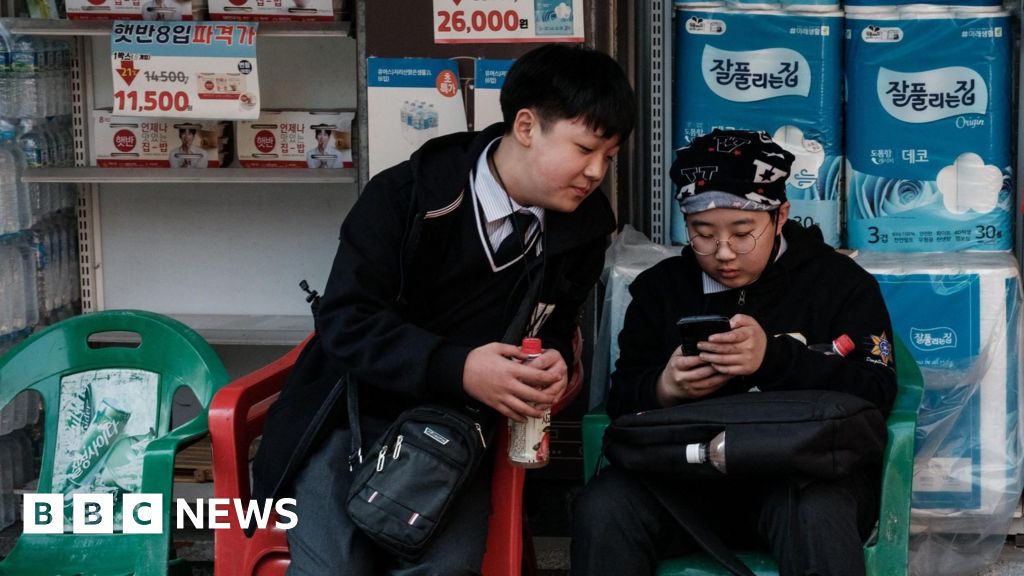South Korea has passed a bill banning the use of mobile phones and smart devices during class hours in schools - becoming the latest country to restrict phone use among children and teens.
The law, which comes into effect from the next school year in March 2026, is the result of a bi-partisan effort to curb smartphone addiction, as more research points to its harmful effects.
Lawmakers, parents, and teachers argue that smartphone use is affecting students' academic performance and takes away time they could have spent studying.
The ban has its sceptics, including students, who question how it would work, its wider implications, and whether it is addressing the root cause of addiction.
The bill passed convincingly on Wednesday afternoon, with 115 votes in favour out of 163 members present.
Most South Korean schools have already implemented some form of a smartphone ban. And they are not the first to do so.
Some countries like Finland and France have banned phones on a smaller scale, applying the restriction only to schools for younger children. Others like Italy, the Netherlands, and China have restricted phone use in all schools.
But South Korea is among the few to enshrine such a ban in law.
Children these days just can't seem to put their smartphones down, says Choi Eun-young, mother of a 14-year-old in Seoul.
It's not just children though. Nearly a quarter of the country's 51 million people depend on their phones too much, according to a 2024 government survey. But that figure more than doubles - to 43% - for those between the ages of 10 and 19. And it has been rising over the years.
More than a third of teens also say they struggle to control the amount of time they spend scrolling through videos on social media. And parents fear that this is getting in the way of everything else they could be doing with their time.
When they go to school, they're supposed to study, but also build friendships and take part in various activities. Yet they're unable to focus on those things, says Ms Choi. Even when chatting with friends, they quickly go back to their phones, interfering with learning as well.
Some parents, like Kim Sun, whose two daughters are in primary school, are worried about bullying on social media, where kids throw around unthinkably harsh insults at each other.
Cho Jung-hun, an MP from the opposition People Power Party who introduced the bill, says he was encouraged to act as other countries made similar moves. He emphasizes the significant scientific and medical proof documenting smartphone addiction's detrimental effects on students' development.
Although it bans phone use during class hours, the law grants teachers authority to enforce phone restrictions on school premises and includes education on responsible device usage.
The legislation offers exemptions for students with disabilities needing assistive devices or permissible uses during emergencies. Teachers are divided on the measure, with some expressing concerns it infringes on students' accessibility rights.
Critics emphasize that instead of simply restricting phone usage, society must also teach students healthy coping skills for their digital habits.

















